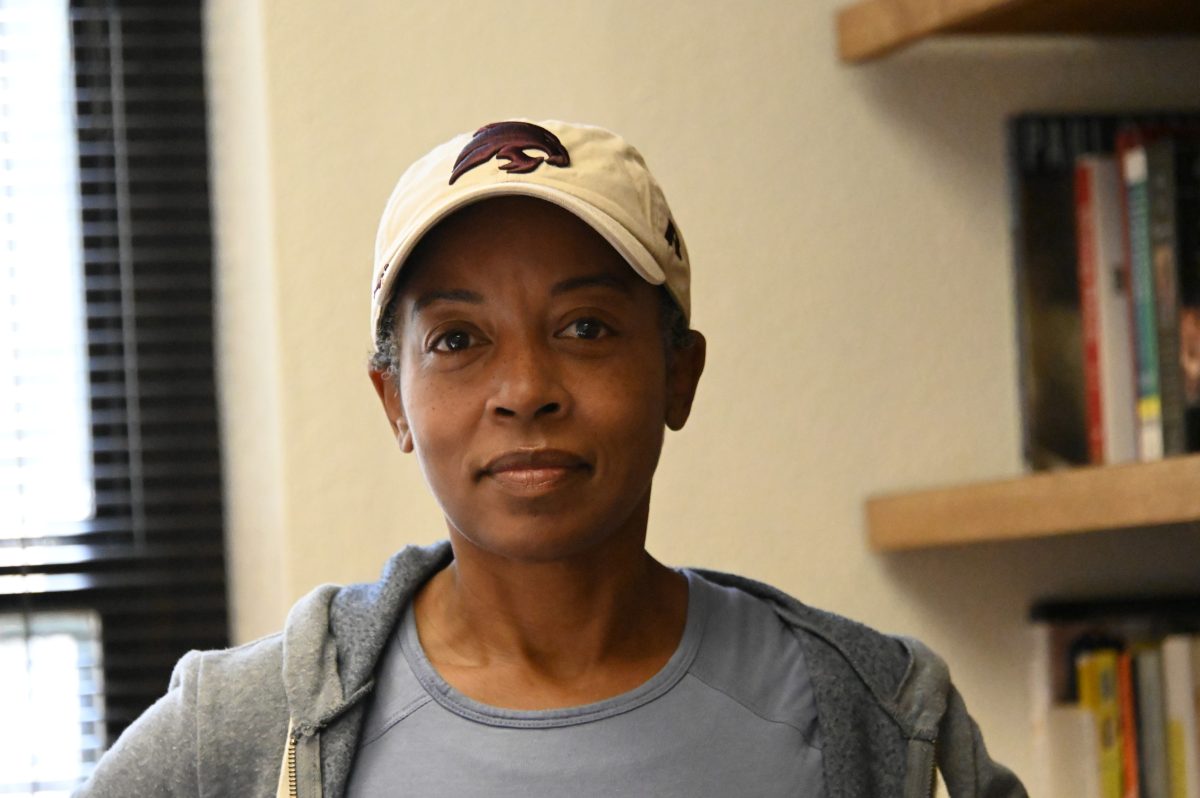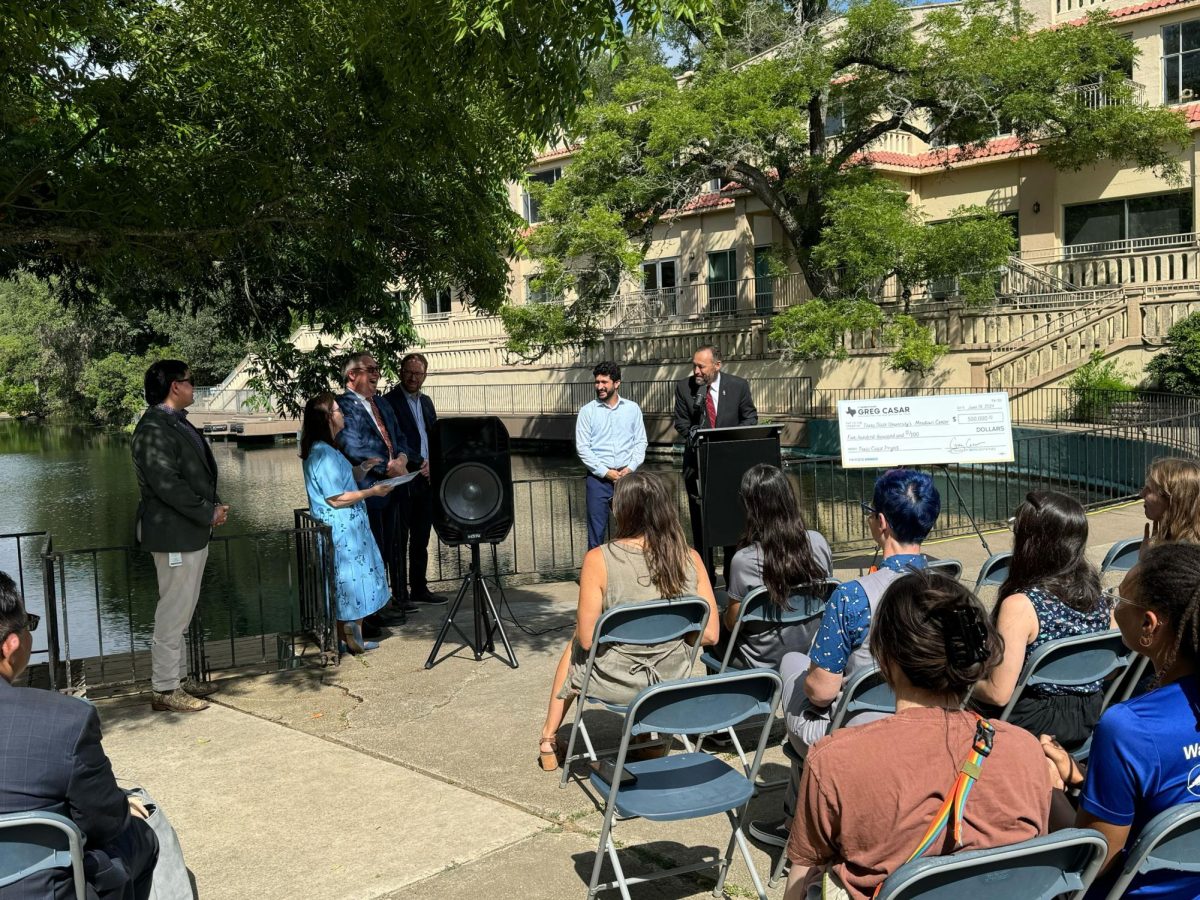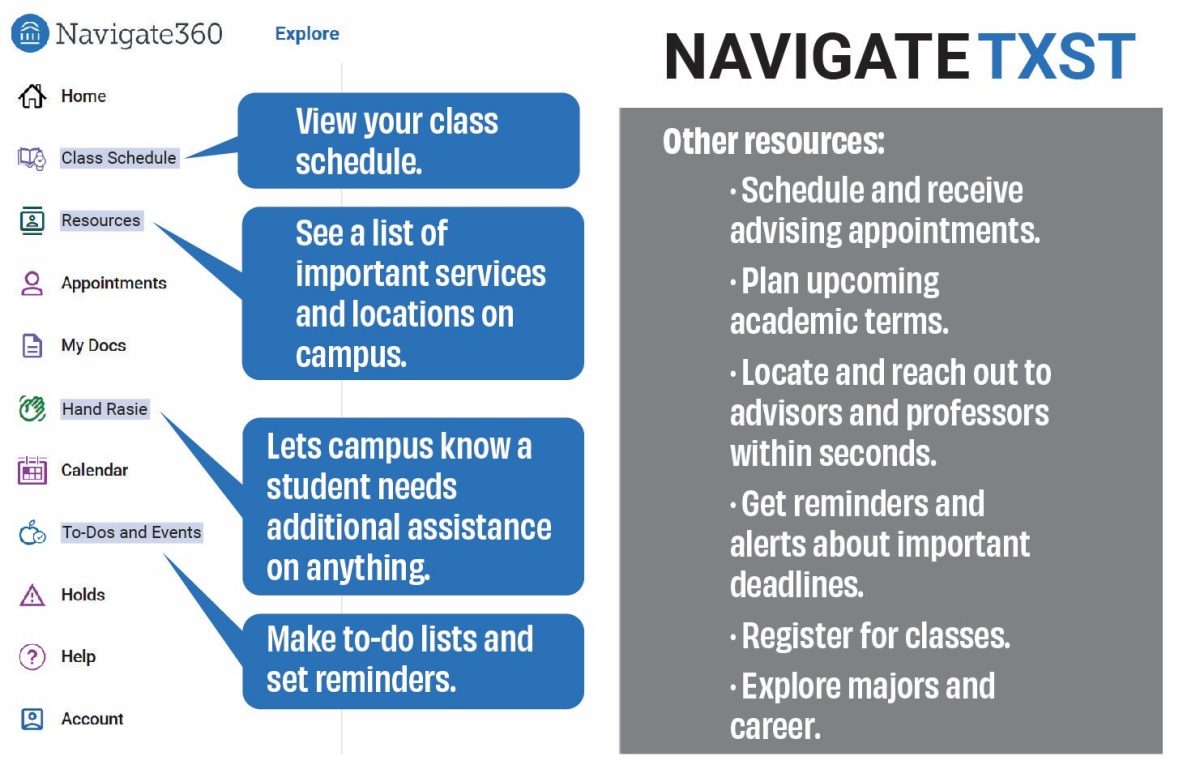As of fall 2019, Texas State employs 159 Black-identifying faculty and staff members — a number considerably less than other racial and ethnic groups. As a result, some Black faculty and staff members question whether this is the result of mistreatment, microaggressions or a lack of opportunities and representation at the university.
“When I came to Texas State, there were nine total Black faculty, maybe a couple of others who were part-time,” said Dr. Dwight Watson, former special assistant to the president for minority affairs and an associate professor of history. “So, you know, Black folks were somewhat of a novelty. You could go for days and not see a Black faculty member.”
After arriving at Texas State in 1999, Watson soon took on the role of mentoring Black students, which he says came naturally to him due to the similarities they shared.
“I watched them and I became like an unofficial adviser for some of them, because when I came to Texas State, I realized, as a Black man, I was more than just a teacher; I was something that students could look to,” Watson said.
Serving as a resource to Black students is something Watson shares with Dr. Sherri Benn, Texas State’s assistant vice president for Institutional Inclusive Excellence-Student Initiatives. Benn says Black students benefit from seeing Black staff and faculty in positions of power — an idea that motivates her to this day.
“For me, students are always my primary motivation,” Benn said. “[It’s] the reason why I take the risks that I do, the reason why I speak up and risk other people’s displeasure. I know that there are brilliant, young, promising Black students here. That is one of the most prominent motivators and inspirations [for me].”
Watson says Black faculty and staff are inherently given additional responsibilities and advisory roles when assuming positions of power, something he says the university administration does not always consider.
“We’re still struggling with this idea that Black faculty take on more responsibilities than white faculty,” Watson said. “Minority students will come talk to us and will ask things of us that they don’t ask of many of the white colleagues. The administration still has not caught up with that in terms of service requirements.”
In 2019, Texas State had 24 Black female full-time faculty members, a number shocking to Dr. Dwonna Goldstone, associate director for the Department of History and director of the African American Studies Program, who says Black educators, in general, might not get considered for jobs at Texas State due to biases.
“I do understand that there are not a lot of Black female Ph. D.s graduating every year. I understand that they are pulling from a limited pool…there are just not that many,” Goldstone said. “However, when there are Black or brown candidates, I think that they still often will select the white man who has more experience even if the person’s color might bring a different kind of experience.”
Addressing biases, noticing microaggressions and feeling uncomfortable in spaces is something Benn says she has experienced throughout her time at Texas State.
“I’ve experienced a lot of the same things that are germane to the experiences of most Black people, which would be, for example, constantly having to legitimize my own value and worth in this space, having to deal with microaggressions; [others are] doing things that create a space that feels unwelcoming at times,” Benn said.
A Black faculty member who requested anonymity due to not feeling protected in their department, says their experience at Texas State has not been easy because of uncomfortable and insensitive situations they say their department allows to happen.
“I don’t want to be in a position where everybody’s asking me, ‘how are you doing? I know what happened with George Floyd, how are you doing?’ Because they didn’t ask me about how I was doing with coronavirus, and I don’t do the same things to them when there are white [supremacists] shooting and killing people; I don’t go into the office and say, ‘how are you doing?’”
When the pandemic began, the faculty member says they took on an increased role within their department, which became tiresome after most of their colleagues put in work-from-home requests.
“It took me literally saying to [the supervisor] that I’m not getting treated fairly, then it took me saying that to another person, ‘I’m not getting treated fairly’, and once I said that, that one person, [they] got it, because it was again, a [person] of color coming to my defense. But if [they weren’t] in the office, I would be invisible, and I wouldn’t be taken seriously. I would be working non-stop by myself.”
The faculty member feels there is a lack of support from their supervisor, who they say treats them as though they are unimportant. They say people of color are neglected by the final decisions of supervisors and often have their issues ignored.
“I’ve been talked to like I wasn’t human, my student workers have been talked to like they weren’t a human and my supervisor heard it and did nothing until I had to basically tell [them], ‘if you’re saying that you’re about this new movement, I rather see actions and words.’”
Watson says the lack of support, like the faculty member described, is a reason the university has trouble retaining Black faculty members. He says there is a possibility Texas State is not looking to increase its Black faculty and staff but instead trying to reach a quota.
“I’ve been on search committees,” Watson said. “I know they’re not looking for ways to increase the number of minority faculty. They are looking for ways to get the representative number they desire. They talk about affirmative action and quotas, but quotas work against Black folks because quotas place limits on the number of Black folks in an organization rather than increasing the number.”
However, Dr. Stella Silva, interim chief diversity officer and assistant vice president for Institutional Inclusive Excellence-Faculty and Staff Initiatives, says Texas State does not have any quotas for university faculty and staff. She says the university instead has strategic initiatives in terms of recruitment, outreach and where it advertises.
“Texas State is moving to a place where we recognize that in order for us to continue to diversify our faculty and staff, specifically our faculty and staff of color and other marginalized groups, [we need] to reach out to them…reach out to those groups and ensure that they know that they have the information of either new postings or new faculty positions coming up,” Silva said.
Dr. Scott Bowman, special assistant to the provost for inclusion and diversity and an associate professor in the School of Criminal Justice, says there is a hiring toolkit, among other initiatives, to help in the strategic efforts that Silva mentioned. He says it is designed specifically to provide search committees with written information on how to market and intentionally diversify hiring pools, as well as to address faculty retention.
“[The toolkit is in place so that] faculty of color, or female faculty, or whoever it may be, [when they] arrive at Texas State…we’re doing what’s necessary to keep them here,” Bowman said. “There is a forthcoming training as well — that will be required of every search committee member — that addresses many of the same things just in a little bit more detail.”
Silva and Bowman, both faculty members of color, say Black faculty members choosing to leave the university can stem from a myriad of factors, such as disputes with department leaders or getting recruited from other institutions. They also acknowledge past events at the university — sit-ins and arrests involving students of color — could play a factor in any struggles to retain or bring in more diverse candidates.
With that in mind, they say the university is working to find solutions and believe Texas State has made positive steps in recent years, citing events like the Juneteenth Day of Reflection and Solidarity, the renaming of residence halls after Black and Latinx Texas State figures and the creation of different committees to address the issues at hand — events that likely “[wouldn’t] have happened six years ago, let alone 16 or 20 years ago,” Bowman added.
“Dr. Bowman and I, we’re not afraid to have those hard conversations…in any circle committee task force that we sit on, including the President’s Cabinet,” Silva said. “So I think in [having difficult conversations about diversity and inclusion], you know, we’ve introduced [it] into spaces where we meet, where individuals may not have been talking about the way students of color feel, the way faculty and staff of color feel. We’re talking about those things. And it’s not just now; we’ve been talking about them for the last 15 to 20 years.”
Both say they encourage faculty and staff members not satisfied with the university’s efforts, to reach out, raise their concerns and help find solutions.
“There’s a faculty of color group that’s been established, really in the past year, that is designed to address issues as they come up, certainly,” Bowman said. “More important, [I encourage faculty and staff] to be proactive in kind of what we do and the type of impact that we have on students, on the university and on each other.”
Jaden Edison contributed to this story.
Black faculty members contemplate institutional shortcomings, lack of inclusion
December 21, 2020
Dr. Dwonna Goldstone, an associate professor of history, poses for a portrait, Wednesday, Dec. 2, 2020, at the Taylor Murphy History building on the Texas State campus.
Donate to The University Star
Your donation will support the student journalists of Texas State University. Your contribution will allow us to purchase equipment and cover our annual website hosting costs.
























